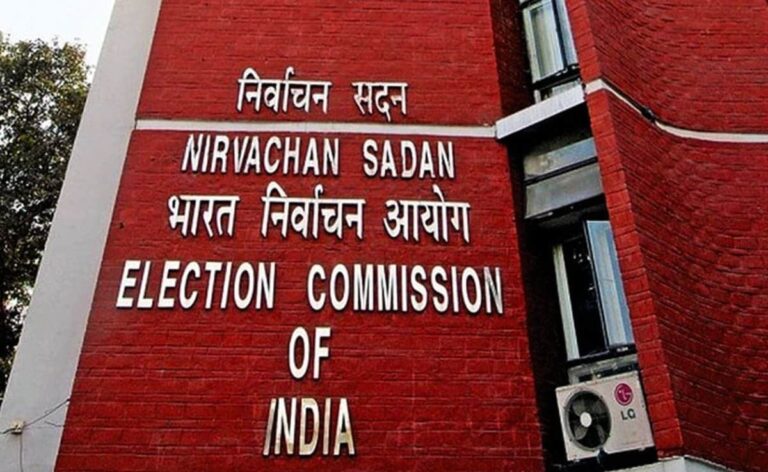
US unmoved by reports blaming Russia for ‘Havana Syndrome’
By Surja | Published | No Comments
The United States supports a year-long intelligence assessment that health problems affecting hundreds of American personnel around the world, in some cases incapacitating them, were not caused by the use of weapons by U.S. adversaries.
The White House, Pentagon and State Department on Monday backed a March 2023 National Intelligence Council report that concluded it was “unlikely” the adverse symptoms known as Havana syndrome were caused by enemy agents, although A new investigation suggests that Russia’s notorious intelligence service may be to blame.
White House press secretary Karine Jean-Pierre defended the 2023 assessment’s conclusions, saying, “The intelligence community has not reached such a conclusion.”
But Jean-Pierre also said the White House has not stopped paying attention to the issue, which in some cases has forced American personnel to retire.
“We take this very seriously,” she said. “We’re going to do everything we can … and we’re going to continue to conduct a thorough examination of the impacts and potential causes that we’re seeing.”
CBS released a joint investigation Sunday night “60 minutes” German Mirror and an expertfound reason to believe that the U.S. intelligence assessment reached the wrong conclusion.
News organizations relied on travel documents, cellphone records, eyewitness testimony and interviews with multiple U.S. officials and victims to conclude that Russia was likely to blame.
Specifically, the investigation linked numerous reports of Havana Syndrome to the presence of members of Russia’s military intelligence unit Unit 29155, which is known for its sabotage and assassination campaigns.
The study also found that many of the symptoms were consistent with the effects of sound or radiofrequency-based directed energy weapons.
In addition, the investigation found that members of GRU unit 29155 received awards and promotions for their work on such weapons.
At the White House, Jean-Pierre referred additional questions about Havana Syndrome to the Office of the Director of National Intelligence (ODNI).
The Office of the Director of National Intelligence, the CIA and the Defense Intelligence Agency all declined to respond to VOA’s requests for comment on Monday.
But both the Office of the Director of National Intelligence and the Defense Intelligence Agency pointed to the global threat assessment released last month by U.S. intelligence agencies.
“Most IC [intelligence community] The agencies concluded that it is unlikely that a foreign adversary was responsible for the reported AHI [anomalous health incidents]”, the assessment report used the U.S. government’s term for Havana Syndrome.
“Intelligence community confidence levels vary as gaps remain given the challenges faced by foreign adversaries – as we do on many issues involving foreign adversaries,” the assessment added. Research and analysis. “
U.S. officials have documented about 1,500 cases of Havana Syndrome since the unexplained illness was first reported in 2016 by U.S. Embassy staff in Havana, Cuba. Victims in Cuba, Russia, China, Poland, Austria and even the United States have reported a variety of symptoms, including nausea, dizziness, headaches and memory problems.
Preliminary investigations suggest that at least some of those who developed symptoms may have been affected by some kind of weapon, a finding supported by the expert panel’s 2022 report.
“Pulsed electromagnetic energy, particularly in the radio frequency range, appears to explain the core features,” the 2022 report said.
But that same year, U.S. intelligence officials began to abandon the hypothesis that the mysterious illness was caused by weapons. For example, the CIA said most cases appeared to be “reasonably explained” by medical conditions or environmental and technical factors.
Russia on Monday rejected the findings of CBS’s “60 Minutes”, Germany’s Der Spiegel and “Insider”.
Russia’s TASS news agency quoted Kremlin spokesman Dmitry Peskov as saying: “This is nothing more than a baseless accusation.”
“This is not a new subject at all,” Peskov said. “From the beginning, it was in part about blaming the Russian side, but no one ever published or expressed any convincing support for these baseless accusations.”
Still, new cases are being reported.
The Pentagon confirmed one of the incidents on Monday, involving a U.S. defense official who developed symptoms “similar to those reported in unusual health events” during last July’s NATO summit in Vilnius, Lithuania.
Pentagon deputy press secretary Sabrina Singer told reporters the person was not part of the delegation attending the summit with Defense Secretary Lloyd Austin.
“I’m not aware of the risk to the secretary of state’s delegation,” Singer said, adding that Austin had “confidence in the intelligence community.”
As for the possibility that Russian agents or those working for other U.S. adversaries could deploy directed energy weapons, “we’re always concerned,” Singer said.
“We are always concerned about any type of impact on health deficiencies and health impacts on our service members and civilians,” she said in response to a question from VOA.
State Department officials said Monday that there will be no repercussions for any employees who object to U.S. intelligence findings, noting that people affected by Havana syndrome already receive medical care and compensation through the Havana Act, which was signed into law in 2021.
“The safety of our personnel remains the secretary of state’s top priority and we are doing everything possible to help those affected,” State Department spokesman Matthew Miller said.
Follow us on Google news ,Twitter , and Join Whatsapp Group of thelocalreport.in






